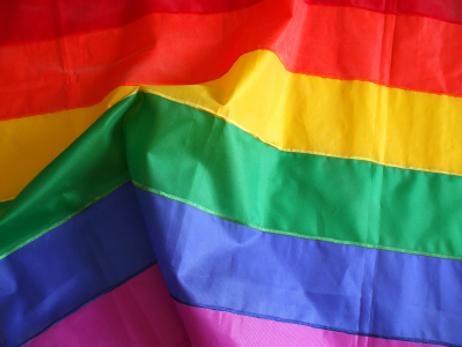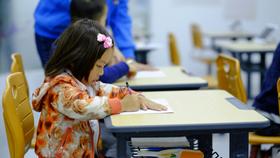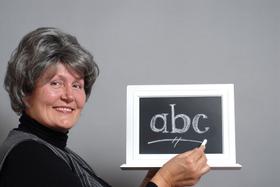The 21st-century has seen some major changes in the way gay and lesbian people's rights are treated. Before 2015, there was a patchwork of state laws dealing with the issue. Indeed, Amanda Machado writes in The Plight of Being a Gay Teacher in The Atlantic that gay teachers were frequently fired when state education departments purged their rolls of LGBT teachers. As the Supreme Court noted in its decision which made same-sex marriage legal, "Well into the 20th century, many States condemned same-sex intimacy as immoral, and homosexuality was treated as an illness. Later in the century, cultural and political developments allowed same-sex couples to lead more open and public lives. Extensive public and private dialogue followed, along with shifts in public attitudes." The Supreme Court decision of June 26, 2015, legalizing same-sex marriages has had a major impact on how gay and lesbian citizens are treated legally. Unfortunately, as you and I know only too well, just because something is legal doesn't mean that all sectors of society will accept it. That is certainly the case with the perception of gay and lesbian people.
In this video, David Weston, CEO of the Teacher Development Trust and former science and maths teacher, talks about coming out as an LGBT teacher.
Gay and lesbian teachers
We have always had gay and lesbian teachers. Until recently, they were mostly closeted, especially in situations where they might lose their jobs if they came out. Now, you won't find gay teachers in religious schools where homosexuality is antithetical to that religion's teachings and beliefs. However, you will find gay teachers and gay couples on staff at many independent private schools. Read Circe Dunnell's Supporting LGBTQ Students and Faculty on the National Association of Independent Schools site. It is a most revealing account of what one gay private school teacher's experience has been.
What's going on here? Schools that have embraced diversity will generally be more tolerant. Schools that have actually created a staff position for a director of diversity will be in an even stronger position. As long as a teacher or staff member is qualified, competent, and otherwise checks out appropriately, what does his sexuality matter? That approach to diversity permeates not only the faculty lounge but also the entire school community.
It takes courage
We live in a far different world than was the case a generation or two ago. The old customs and mores have forever changed. To be sure, being gay generates controversy and division in communities. Look at the serious schism in the Anglican Church due to an openly gay bishop's ordination.
Nonetheless, it takes courage for a board of trustees to employ openly gay staff. That's exactly what Phillips Andover did in 2000. The only catch is that the staff must sign an affidavit confirming that their relationship is a committed one. The lesson and example being taught here are profound: A committed relationship deserves respect and should be upheld. Students seeking answers about their own sexuality will feel more inclined to discuss such serious matters without fear of retribution or derision. If a school is to truly champion diversity, then allowing faculty to live on campus in committed relationships is just one more aspect of teaching diversity. After all, schools teach by example.
Another example of a private school that is in the vanguard of diversity initiatives is Rutgers Prep School. Diversity is not just a word at Rutgers Prep; it is a philosophy in action. The positive impact which that approach has on the entire school community is enormous and encouraging. Discrimination and prejudice have caused tremendous damage to societies worldwide. Fixing requires our beginning with young people and teaching them to celebrate diversity in all its various manifestations and aspects.
Supporting teachers
One of the things that creates a successful teacher is support. Teachers are always learning. The learning never stops with good teachers. They are always looking for new ways to present their subject material. But learning is a process that requires constant, consistent support from the school administration and parents. Similarly, the young teacher who is dealing with his sexuality needs the support of both school and parents. His students will follow suit. They will listen to what the school and parents say. So, when the school supports LGBTQ teachers with an inclusive, diverse community fully backed by policies and initiatives enthusiastically endorsed by the board of trustees, teachers flourish in ways they never thought possible. In an essay entitled The Elements of Effective Teachers, the write posits: "Student success depends on effective teaching— not just occasionally, but every day in every classroom and school. Effective teaching impacts students’ academic, physical, social-emotional, and behavioral well-being. Effective teaching occurs best when all education stakeholders, including parents, policymakers, community members, and educators, share responsibility for continuous improvement and student achievement. For teachers in classrooms, effective professional learning is the single most powerful pathway to promote continuous improvement in teaching."
The Need for Integrity
Teachers need their students to trust them. That requires integrity, the essence of which is honesty. Being honest about one's sexuality creates the backdrop against which teachers can build a relationship of trust with their students. A line in the Indeed Career Guide caught my eye. It makes as much sense in the classroom as it does in the business world. "Integrity requires honesty. Those with integrity strive to be truthful. They own up to mistakes and try to learn from them."
Finally, this quote from Mandi, a Knowles Teaching Fellow, says it all: "Last month, one of my students came out as a lesbian. After a particularly rough day, she collapsed in my room, crying, and said, “I’m so glad to know you’re here for me, even if my parents aren’t.” Last year, I had a student commit suicide. When his best friend finally returned to school, he hugged me for a very long time and whispered, “Thank you for being a genuinely caring teacher.” These little moments remind me, for a brief second, that the work I do is impactful and powerful. These little moments are always in the back of my mind, and they are what keep me coming back."
Teachers: be honest. Have integrity. Schools: support your teachers with an inclusive, caring community.
Questions? Contact us on Facebook. @privateschoolreview














